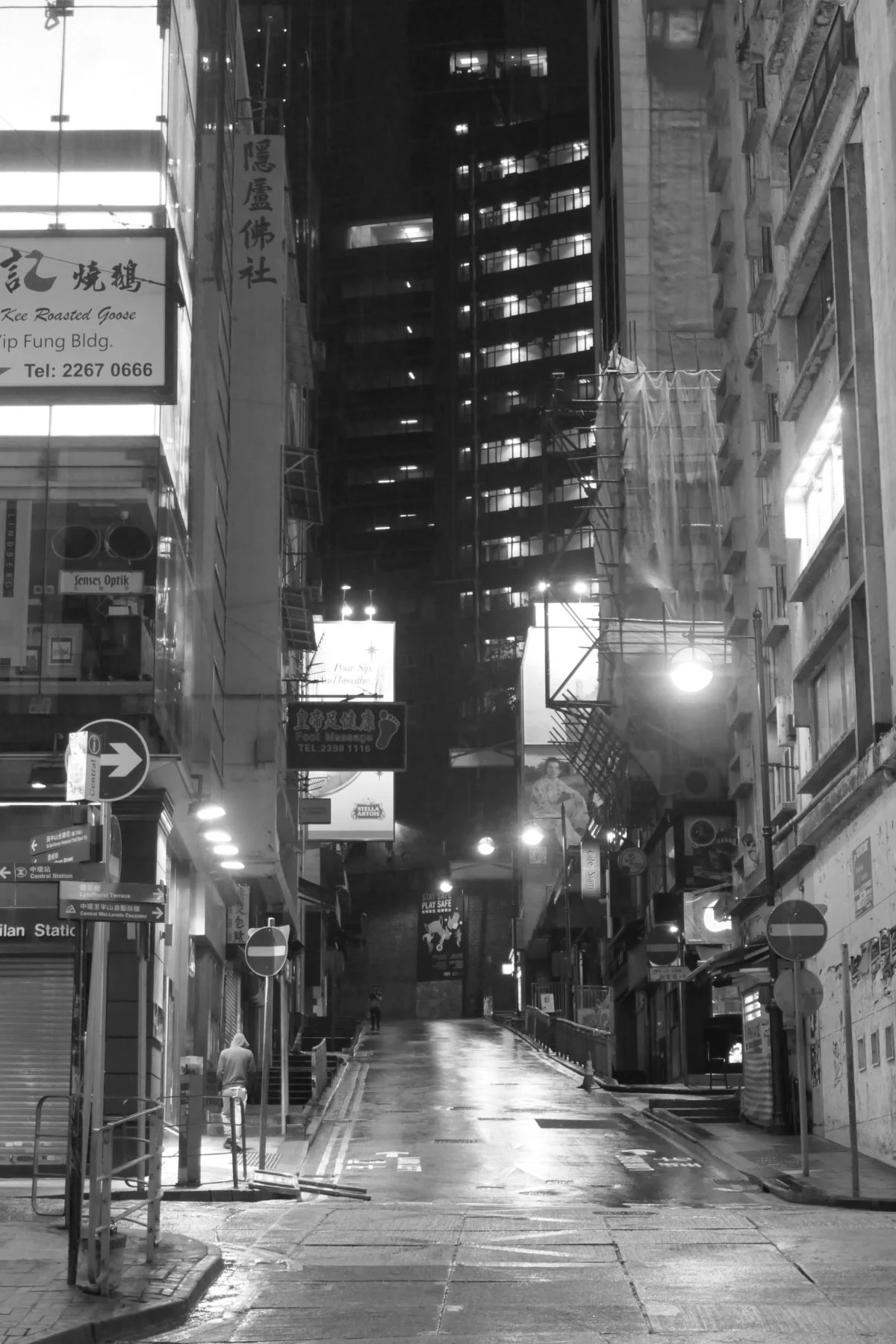
All looked on schedule as we boarded our Cathay Pacific flight at Melbourne airport. Then, the aircraft captain announced there was a small mechanical problem in the plane’s wing requiring technicians to check. They checked, and the captain then announced that Airbus, the airline’s manufacturer, would need to make the final decision on whether to replace a part. A two hour wait became four hours, and the opportunity to arrive in Hong Kong before 12midnight on 18 March 2020, before a compulsory 14-day quarantine was imposed, was missed. The captain apologized for the delay and announced that passengers (or “customers” as airlines now refer to us) could disembark if they did not wish to be home-quarantined on their arrival in Hong Kong. About 20 passengers disembarked. I and the other passengers took the news stoically and calmly – there was little to be done about being late, and besides, I am just happy to arrive safely. Dinner was served and I watched Trivisa (2016), a good old-style Hong Kong gangster movie. It was then announced that the “paperwork” for the repair had been completed and we would get clearance to fly in the next half-hour. Then, when we were set to depart, a passenger’s daughter felt sick, the family disembarked, their luggage removed. One of the cabin crew appeared in full PPE (personal protection equipment) disinfecting the family’s row of seats; disconcertingly (it didn’t seem very effective) a couple of blankets were placed over those seats to ‘seal’ them off from other passengers. It was another reminder, as was our plane full of face-masked passengers, how Covid-19 had finally travelled around the world.
Our flight, CX 104, arrived in Hong Kong six hours late, at about 3.30am; we were the first flight to arrive in Hong Kong under the new home-quarantine regulations for overseas arrivals. We were led to a queue and given an official quarantine order to sign, an envelope of instructions, including a daily table to complete our body temperature twice a day and boxes to tick if we experienced “headache”, “diarrhea”, “fever” etc – any of the known symptoms of Covid-19. In the queue, we then had a tracking Q-code bracelet placed on our wrist. I explained I did not have a smartphone to download the app. “No worries”, I was told by an official, “we will ring you tomorrow and a smartphone will be delivered to you.” I got a couple of phone calls about the bracelet over the next two weeks, but – like many others – the tracking feature was never activated.
My quarantine was a daily routine of (vegetarian) food preparation, reading, catching-up on many long-neglected tasks, sleeping, and exercise. I kept it all simple and didn’t constantly check news reports. I knew, similar to last year’s Hong Kong protests, that obsessive news monitoring only increases anxiety. As I suspected, my first week in quarantine went very slowly, but the second week went very fast. On my first days outside again, I was conscious that the safe bubble of my own home protected me from the possibility of catching the virus and that now venturing into the larger world was a constant opportunity for unknown people and surfaces that I touched to hold the virus and for it to be passed to me. But, that’s a paranoid view: social distancing, avoiding crowded places, hand washing, wearing a face-mask and resisting touching our face are excellent preventative measures. That requires self-discipline and I was pleasantly surprised when I walked the streets that Hong Kong was overwhelmingly adhering to these simple rules of preventative behaviour.
Officials can be unnecessarily fussy about administrative process rather than the substance of an issue. One of the crucial aspects in building our general knowledge of Covid-19 and Hong Kong’s particular epidemiology is to do testing for Covid-19. I believe I should have been tested for the virus as I entered Hong Kong, and also during the two weeks of my quarantine. I should have been rung, not to be asked about my bracelet, but rigorously questioned about my health and where I had travelled from; and mid-quarantine, been given a test to check for Covid-19. The more we test, the
more we know about the virus and its spread throughout Hong Kong.
Almost daily, someone of influence has an opinion about what levels of further isolation and measures the government should consider next. Some members of the pro- government camp, and I could cynically say ‘of course, they do!’, wish to postpone the September Legislative Council elections. Others suggest we introduce a lock-down like in Italy, or, make wearing facemasks compulsory. Amazingly, Hong Kong’s health officials have achieved a fairly good balance between maintaining personal freedoms, allowing necessary movement of people, and imposing an effective level of preventative measures against the spread of Covid-19.
Every country, every city is different. Hong Kong, with its many sub-divided flats, small public and private housing units and inhuman cage-homes is, as we know, a tight place in which to live. A lock-down in Hong Kong would be a disaster. Unlike western countries, the majority of Hong Kong housing doesn’t have backyards or much private space – families and neighbours live closely together and many people don’t even cook or eat at home, as it is so crowded. Just look at the recreation areas surrounding public estates: people find outdoor space to safely isolate themselves outside their homes!







